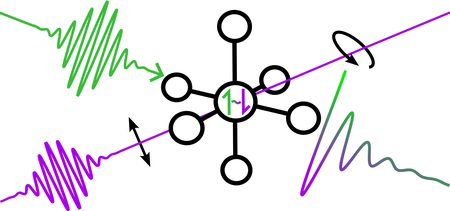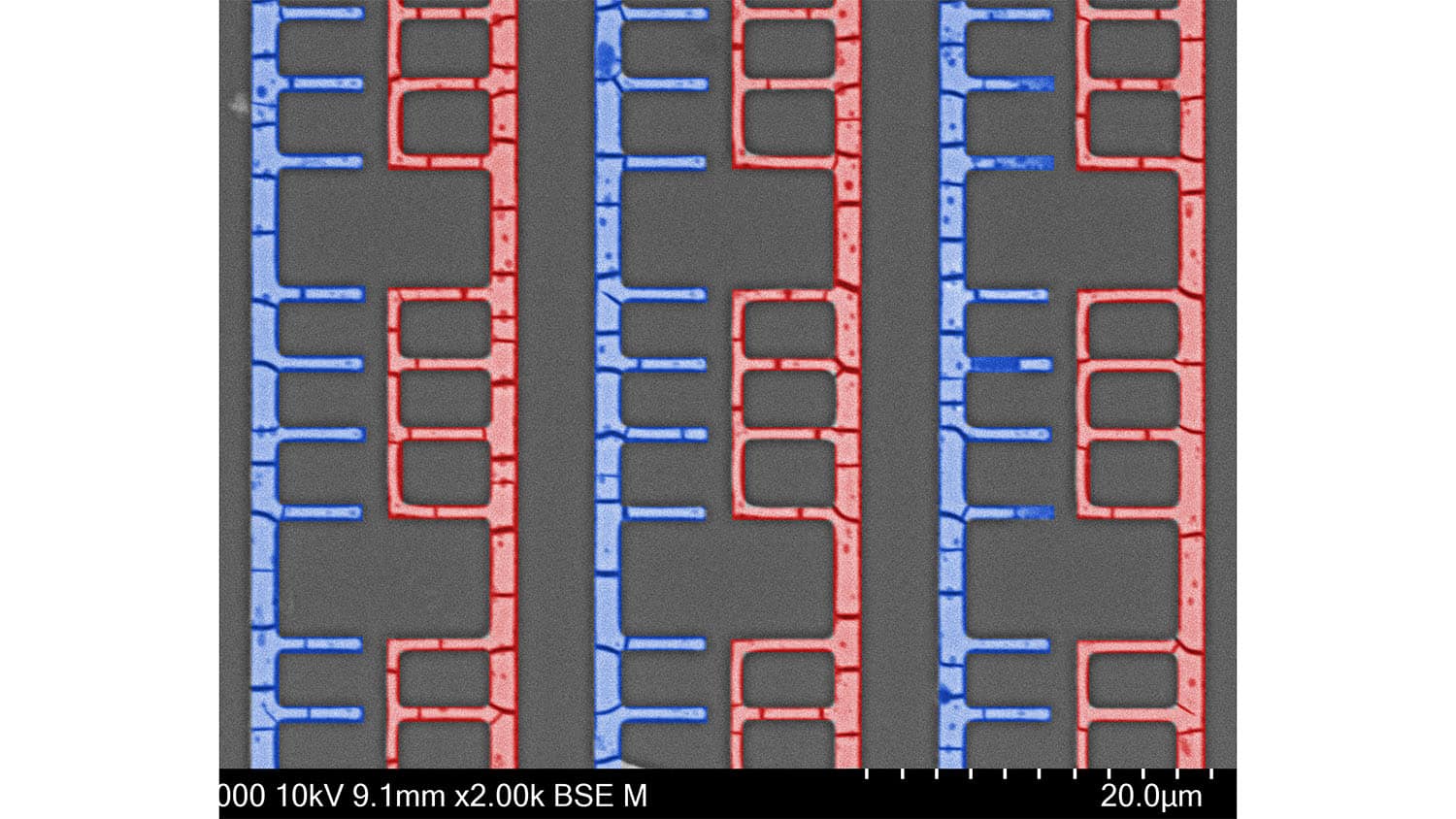2024-12-02 カリフォルニア工科大学(Caltech)

Irradiation of a specially designed molecule with a laser pulse (green) generates an oscillating quantum mechanical superposition of two electron spin states. A second, weaker laser pulse (purple) is capable of measuring the evolution of the superposition on the femtosecond to picosecond timescale, significantly faster than previous methods. This new spectroscopic approach enables the study of molecular coherence under unprecedented chemical conditions and provides a platform for the development of quantum sensing applications.Credit: Caltech
<関連情報>
- https://www.caltech.edu/about/news/quantum-sensing-using-ultrafast-laser-pulses-and-a-new-class-of-molecular-probes
- https://www.science.org/doi/10.1126/science.ads0512
室温水溶液中における分子電子スピンの超高速全光コヒーレンス Ultrafast all-optical coherence of molecular electron spins in room-temperature water solution
Erica Sutcliffe, Nathanael P. Kazmierczak, and Ryan G. Hadt
Science Published:7 Nov 2024
DOI:https://doi.org/10.1126/science.ads0512
Editor’s summary
Molecular quantum bits (qubits), exhibit high tunability and spatial precision, making them highly favorable for use in quantum sensing applications. However, in most molecular systems at room temperature, electron spins decohere faster than the typical time resolution of most available instrumental methods, hindering the design of desired optical functionality. Using pump-probe polarization spectroscopy and the optimized molecular system K2IrCl6, the electronic structure of which was rationally chosen to couple light and spin, Sutcliffe et al. demonstrated picosecond all-optical detection of electron spin decoherence in molecules at room temperature in aqueous conditions and at low concentration. The presented methodology improves experimental time resolution by up to five orders of magnitude and opens up new opportunities for developing qubit platforms for sensing and information processing applications. —Yury Suleymanov
Abstract
The tunability and spatial precision of paramagnetic molecules makes them attractive for quantum sensing. However, usual microwave-based detection methods have poor temporal and spatial resolution, and optical methods compatible with room-temperature solutions have remained elusive. In this study, we utilized pump-probe polarization spectroscopy to initialize and track electron spin coherence in a molecule. Designed to efficiently couple spins to light, aqueous potassium hexachloroiridate(IV) enabled detection of few-picosecond free-induction decay at room temperature and micromolar concentrations. Viscosity was found to strongly vary decoherence lifetimes. This approach has improved the experimental time resolution by up to five orders of magnitude, making it possible to observe molecular electron spin coherence in a system that only exhibits coherence below 25 kelvin with traditional techniques.



